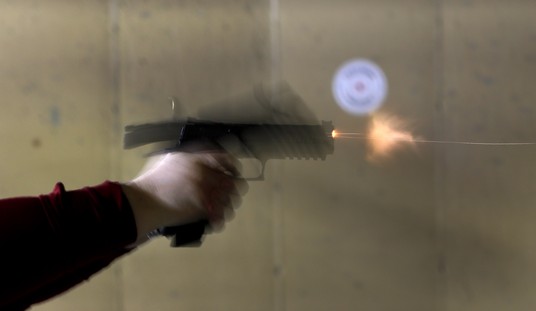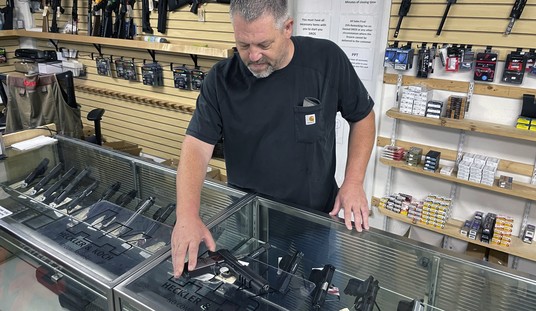One of the cases up for consideration by the nine justices on the Supreme Court at this week's conference was Vincent v. Garland; a prohibited persons case that questions the lifetime loss of gun rights over a bad check written more than a decade ago.
Melynda Vincent is, according to her attorneys, a "licensed clinical social worker, business owner, mother, and public-health activist." She's also a felon, convicted in 2008 for writing a bad check totaling $498.12 at a grocery store. At the time Vincent was homeless and fighting a drug addiction, but over the past fifteen years she's had an amazing turnaround; graduating from college and earning multiple degrees in Utah, founding a counseling center, and running the Utah Harm Reduction Coalition, among other accomplishments.
While Vincent didn't let her felony conviction (which resulted in a probationary sentence) define her life, it still prevents her from being able to lawfully purchase or possess a firearm. As a single mom, Vincent says she'd like to exercise her Second Amendment rights so she can protect her family, but she'd also like to go hunting with her kids; an impossibility given her status as a prohibited person.
Vincent started her quest to challenge the federal prohibition on her gun ownership even the Supreme Court handed down its decision in Bruen and laid out the text, history, and tradition test that should be used to determine the constitutionality of gun laws. A district court shot down her initial complaint, and though the Bruen decision had been issued by the time her case reached the Tenth Circuit Court of Appeals the court refused to apply that test to her case. Instead, the panel concluded that "because Bruen did not 'appear to question the constitutionality' of felon-disarmament laws, the court did not need to apply Bruen’s “new test” before holding § 922(g)(1) constitutional, regardless of 'the type of felony involved."
In their cert petition, Vincent's attorneys note that there's a growing split in the lower courts over who, exactly, possesses the right to keep and bear arms. Are all felons categorically deprived of their Second Amendment rights, as the Tenth and Eighth Circuits maintain? Or, as the Third Circuit Court of Appeals has ruled, are some people with non-violent felony convictions still part of "the people" who can keep and carry a gun?
Vincent's attorneys argue that if the Bruen test is faithfully applied, the Tenth Circuit's decision cannot stand.
Section 922(g)(1) violates the Second Amendment as applied to Ms. Vincent because our historical tradition of firearms regulation does not permit the federal government to permanently disarm someone based solely on the fact of a prior non-violent criminal conviction. That is true especially where no evidence suggests that the person poses, or has ever posed, a threat to anyone else.
Merrick Garland and the DOJ, on the other hand, maintain that the Second Amendment only protects the right of "law-abiding citizens" to keep and bear arms. In their view, Vincent shouldn't be allowed to buy a gun or have a pistol in her home to defend herself and her family if needed, all because of that bad check that she wrote at one of the lowest points in her life.
I'm not proud of this, but when I was 19, I wrote a bad check to a grocery store as a broke college student. Thankfully, my mother was able to front me the money to provide restitution to the store, which allowed me to avoid criminal charges of my own. Were it not for that, I might very well be in the same position that Vincent is in today.
Unlike me, Vincent didn't have anyone to step in and save her from the consequences of her actions. But she saved herself after her guilty plea. Over the past fifteen years she's put herself through school, raised a family, and has helped others who are fighting their own battles with drugs and alcohol.
The world could use more Melynda Vincents, and the one that we have deserves to regain her Second Amendment rights. The Supreme Court should grant cert to her petition alongside the case of Bryan Range, the Pennsylvania man who was forbidden from possessing a gun after a conviction for falsifying his income on a food stamp application more than 20 years ago. The Third Circuit concluded that Range does have a Second Amendment right to keep and bear arms, but Garland and the DOJ are petitioning the Court to reject that decision and keep him from lawfully obtaining a firearm.
The Court will likely hold on to Vincent's petition until after it issues its decision in the Rahimi case, which is expected in June. That's what the Court has done with Range, and it seems like the most appropriate action for the justices to take here. Once that decision comes down, however, I hope the Court will agree to hear both challenges. These two cases, both involving non-violent felons who've posed no threat of harm in the years since their convictions, provide the Court with the opportunity to flesh out the Bruen test and provide justice to Vincent, Range, and countless others with similar stories.










